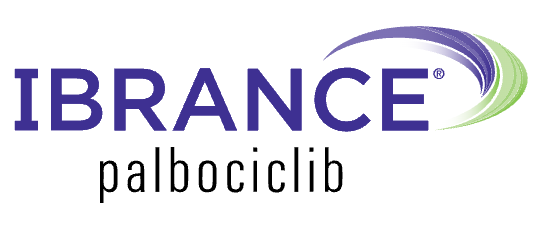Introduction
Alectinib is an oral medication belonging to the second generation of drugs that selectively target the activity of anaplastic lymphoma kinase (ALK) tyrosine kinase. It’s specifically designed for treating non-small cell lung cancer (NSCLC) that expresses the ALK-EML4 (echinoderm microtubule-associated protein-like 4) fusion protein, a driver of NSCLC cell proliferation. By inhibiting ALK, it blocks the phosphorylation process and subsequent activation of STAT3 and AKT, leading to decreased viability of tumor cells.
Initially approved under accelerated approval in 2015, alectinib is indicated for patients who have either progressed on or were unable to tolerate crizotinib, another medication associated with the development of resistance.
What is ALK-positive metastatic NSCLC?
ALK-positive metastatic NSCLC is a specific form of non-small cell lung cancer (NSCLC) characterized by a genetic alteration in the anaplastic lymphoma kinase (ALK) gene. This mutation leads to the formation of the EML4-ALK fusion oncogene, activating the ALK protein and downstream pathways that support cancer cell growth and survival. It’s relatively rare, accounting for about 5% of NSCLC cases, and is more prevalent in younger, non-smoking, or light-smoking patients with adenocarcinoma histology.
Detecting ALK positivity is essential for treatment decisions, as targeted therapies like alectinib, which inhibit the abnormal ALK protein, have shown promise in managing this type of lung cancer. These ALK inhibitors work by reducing cancer cell growth and improving outcomes for patients with ALK-positive metastatic NSCLC.
Mechanism of Action
Alectinib selectively targets the activity of anaplastic lymphoma kinase (ALK) tyrosine kinase, specifically in non-small cell lung cancer (NSCLC) expressing the ALK-EML4 (echinoderm microtubule-associated protein-like 4) fusion protein. This fusion protein drives the proliferation of NSCLC cells. By inhibiting ALK, alectinib prevents phosphorylation and subsequent activation of STAT3 and AKT, leading to reduced tumor cell viability. Both alectinib and its major active metabolite M4 exhibit similar activity in vivo and in vitro against various mutant forms of ALK.
In the treatment-naive setting for ALK-positive NSCLC, alectinib has shown superior efficacy and safety compared to crizotinib. According to findings from the ALEX trial, alectinib emerged as a highly effective option for ALK-rearranged NSCLC patients, demonstrating a median progression-free survival that had not been reached at the time of the study.
Alectinib absorption increases by 3.1-fold when taken with a high-fat meal. It undergoes metabolism by hepatic CYP3A4 enzymes to produce M4, an active metabolite that is also metabolized by CYP3A4. The drug is primarily excreted through feces (98%), with minimal renal excretion. Alectinib has a good safety profile, with low rates of grade 3 or 4 adverse events.
Side effects
Common side effects alectinib include,
General:
- Fatigue
- Constipation
- Swelling (hands, feet, face, eyelids)
- Muscle pain, tenderness, and weakness
- Low red blood cell count (anemia)
Gastrointestinal:
- Nausea
- Vomiting
- Diarrhea
- Abdominal pain
Skin:
- Rash
- Dry skin
- Increased sun sensitivity
Other:
- Headache
- Dizziness
- Vision problems (blurred vision, light sensitivity)
- Increased liver enzymes
Recommended Dose
The recommended dosage of alectinib for ALK-positive metastatic non-small cell lung cancer (NSCLC) is 600 mg orally twice daily with food until disease progression or unacceptable side effects occur. Dosage adjustments may be made based on individual patient factors and tolerability. If the 600 mg dose is not well tolerated, it may be reduced to 450 mg twice daily, and further to 300 mg twice daily if needed. It’s essential to adhere to the prescribed dosing regimen and any adjustments advised by your healthcare provider. If you have any questions or concerns about your dosage, be sure to discuss them with your healthcare team.
In conclusion, alectinib is a potent and selective ALK inhibitor that has demonstrated superior efficacy and safety in the treatment of ALK-positive NSCLC. Alectinib’s mechanism of action involves inhibiting ALK and RET proteins, preventing their activation and subsequent downstream signaling of cell proliferation and survival. To check availability of Alectinib in India(the generic version), interested individuals can contact the Patient Support Team at (+91) 9315705373 or via email at help@sansfro.com.



